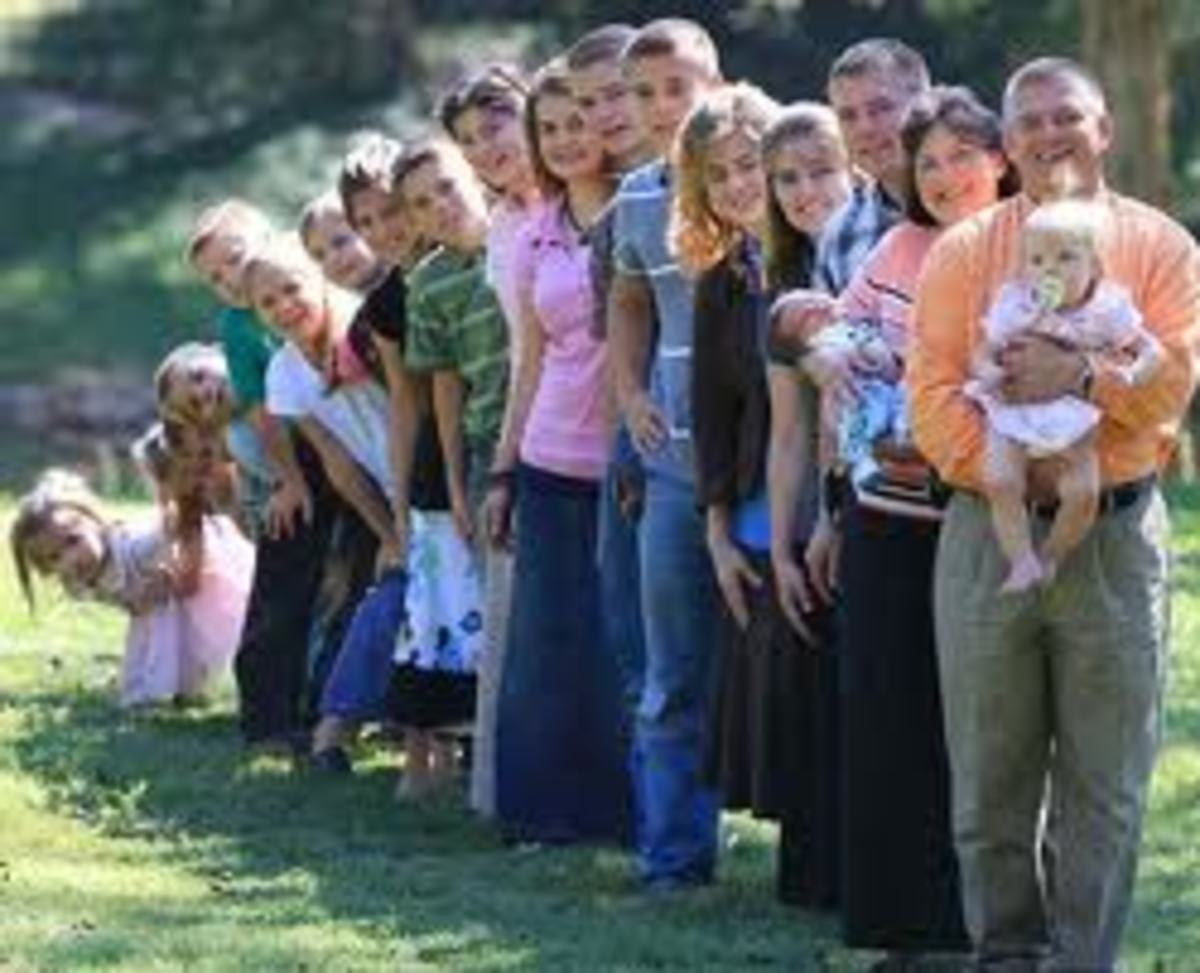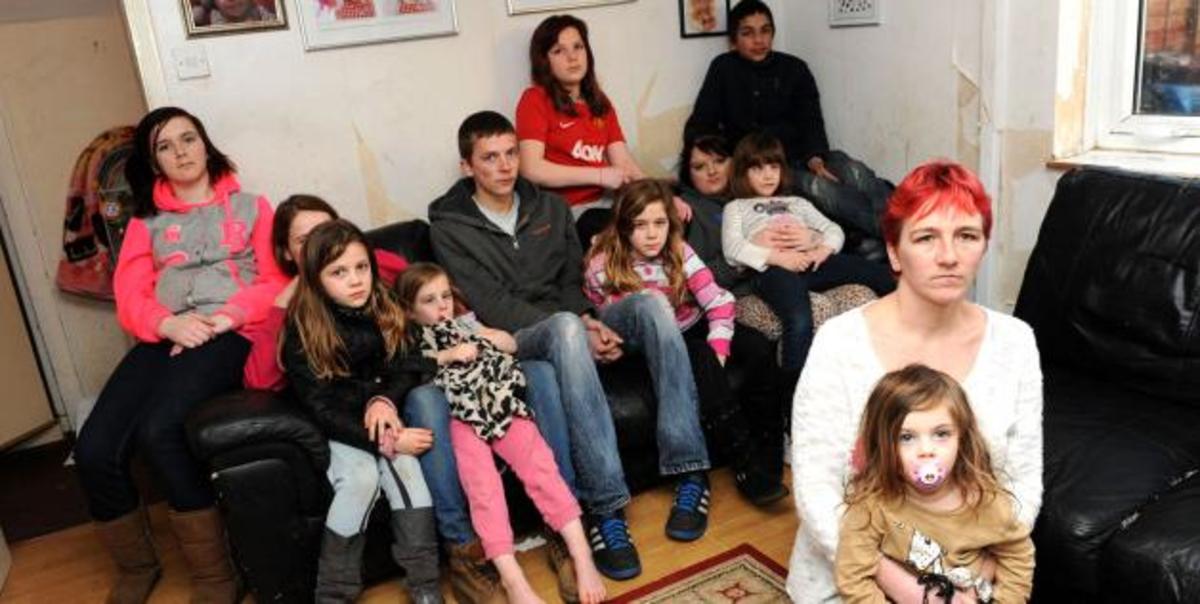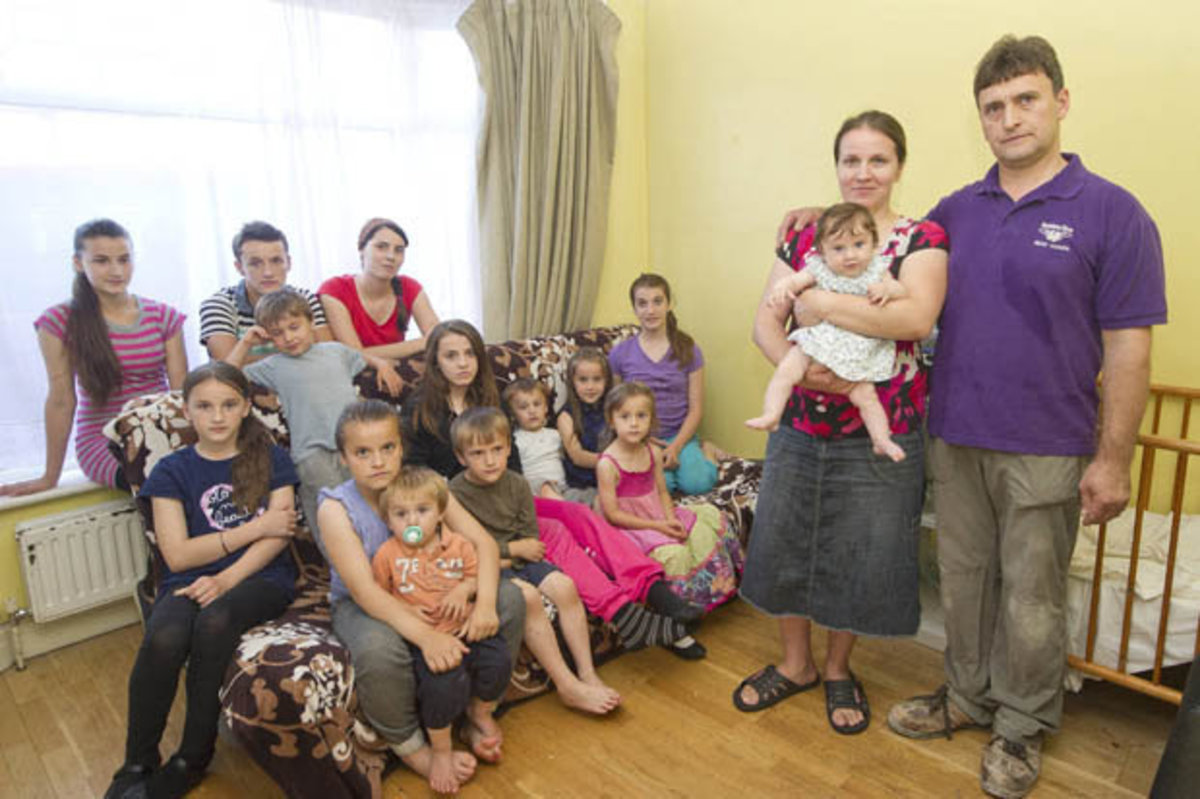MISPERCEPTIONS That People From Large Families TEND To Have About People From Small Families, Part I

Just LOOK At Them..................They Have It So GOOD............They Are SPOILED........
Small families, medium sized families, and large families. Yes, families come in different sizes. Each size family has its own unique culture, psychology, and milieu. One size does not necessary fit all although all of us have opinions of which is the best sized family.
For the sake of this hub, the medium sized family will not be discussed here. The topic of discussion is the perception, often mistaken, that people from large families have of people from small families. It seems to be an unspoken and unwritten animosity between people from large families vs people from small families.
Each one portends that their respective families are better than the other. Each family size tends to have an analysis and/or observation of the other. Here is a list of misperceptions that people from large families often have about people from small families.
(1) People from small families simply have no conception of sharing with others. Many people from large families staunchly contend the inane premise that children from small families, particularly only children, are totally incapable of sharing because there is not a large number of children in the family. Nothing is further from the truth. Children from small families do share and share often.
If they have a sibling, they, of course, share with that sibling. If not, they share with their parents. Children in small families often have more intense relationships with their parents than children from large families who tend to have infrequent parental interaction. They also share with other children whether it is neighbors, classmates, friends, cousins, and other associates.
In fact, from my experience, it is we from small families who are more likely to share because we have plenty. There was a study done by author and teacher Ellen Peck on small families. Ms. Peck indicated that children from small families because they have more, are more likely to share their possessions and belongings. Ms. Peck further indicated that children from large families because they grew up in lack, tended to huddle around their possessions.
Case in point, in my elementary, junior high and high school, I and other classmates from small families often loaned pencils, notebooks, and other paraphenalia to classmates who were from large families. They had no pencils and notebooks. On a daily basis, they asked us for pencils and notebooks because their parents could not afford to provide them with these articles.
When they got possessions, they refused to share them. In fact, they wanted more. They would actually fight with other similarly situated children for the few possessions they had. There was one instance from childhood which I remembered. I invited a classmate, who was 1 of 20 children over to my house. I gave her a doll. She hugged me and cried, stating that she never had a doll in her life. She related to me that all she played with was cardboard because her parents could ill afford to provide her with toys.
(2) People from small families are overly supervised by their parents. Well, there are a few parents who are somewhat overprotective of their small brood, such is not the case again. Parents of small families have the means and wherewithal to adequately supervise their children. They know the importance especially in this perilous day and age of monitoring their children.
Children who are supervised and monitored by their parents tend not to become involved in the more dangerous and deleterious activities such as delinquency and gangs. Parents from small families have the means, socioeconomically and otherwise, to enroll their children in more wholesome cultural, educational, and intellectual activities. These parents know the paramount importance of scheduling their children in constructive activities. They realize that this will prevent them from getting into trouble.
For example, in my neighborhood, our parents regularly scheduled inhouse parties which all of us children participated in and attended. Our parents also took us on educational trips such as museums, art shows, and plays. We children were never allowed to be unsupervised except for specific occasions.
It is children from large families who more likely to be unsupervised by their parents. From my experience and what those children have related to me, their parents have their hands "full" so to speak. This resulted in many children from large families being left to their own devices and what can be described as benign neglect.
As a child, it was the children from large families who were allowed to run wild and unsupervised in the neighborhood. Since their parents did not have any monies to enroll them in cultural and intellectual actiivities, they were helter skelter so to speak. They were also the ones who got into the most trouble with the authorities.
My mother, a registered nurse, related to me that a patient who was from a very large family, used to sneak out at night, unbeknowst to his parents, and ran the streets. In addition to that, he frequently skipped school to indulge in delinquent activities. He was subsequently arrested and placed into a reformatory. He related to my mother that he did what he did just to get away from his crowded home environment and just to survive!
(3) People from small families are "overly" attached to their parents. Parent-child relationships in small families are often more intense and closer than those of large families. In small families, parents have the time and the psychological resources to devote to each child. Studies show that children receive more individualized attention in small families than they do in large famities. These are undisputed facts and as my late father stated that a reasonably intelligent person cannot and/or should not bother to argue with the facts.
Because of the intense and individualized parent-child interactions in small families, children in small families develop more mature mannerisms and more advanced vocabularies. They also learn how to interact with adults earlier and with much ease. It is nothing for a parent of small families to have intense and mature discussions with their children. I had such discussions with my parents constantly. From the time I was eight, we regularly discussed politics, history, and other intellectual subjects. As a result of this, from childhood, I could easily converse with adults.
Contrast this to children from large families whose primary interactors are other children since their parents are often unavailable. Such children's intellectual development is slower. They also cannot effectively interact with adults, only with other children. In essence, they are more child focused than adult focused in their orientation.
Let me not digress. In small families, there is less psychological familial stress because there are not a lot of children which can be psychologically and emotionally taxing for the parent to raise and/or interact with. Parents can easily and freely spend time with their children without that much fanfare. It is easier and much more pleasant(certain circumstances not withstanding) for a parent to interact with 2 children than it is to interact with 8.
In many large families, there is no such thing as spending individualized time with your children. Some receive attention while others are left on their own. Yet there are other parents who schedule time by which their children are to see them. So their children are on rotation as to when they are to see and interact with their parents.
(4) People from small families are spoiled and materialistic. Those who are from small families hear these misnomers from time immemorial from people from large families. The majority of children from small families,of course, are more socioeconomically affluent than children from large families. Such affluence translates that children from small families often have more than the rudiments and necessities.
Children from small families often have more materially and socioecnomically than children from large families who have to be content with only the rudiments. Because children from small families, are for the most part, materially comfortable, they can travel and indulge in pasttimes and hobbies which are beyond the purview of most children in large families. Parents of small families often plan and strategize socioeconomically before they decide to have children.
These parents realize that providing a decent socioecnomic life is important for their children. They want their children to have the best possible. They want their children to be exposed to more than just the bare rudiments of life. This parental premise result in their children being exposed to such niceties such as foreign travel, plays and the other finer things of life. This result in children from small families often appreciating what they have and wishing to duplicate this for themselves and their children when they become adults.
Children from small families do not have a mentality of lack and want. They do not believe in the psychology of poverty consciousness i.e. it is good to be poor and constantly struggling. They were taught that there is nothing inherent wrong with having things and being socioeconomically affluent. They know that being poor and struggling causes stress and other psychological and emotional stresses. In essence, having a lot does not mean spoiled and materialistic. That is just a coin phrase used by people from large famlies who grew up poorer and had to constantly struggle just to stay economically above water...............








